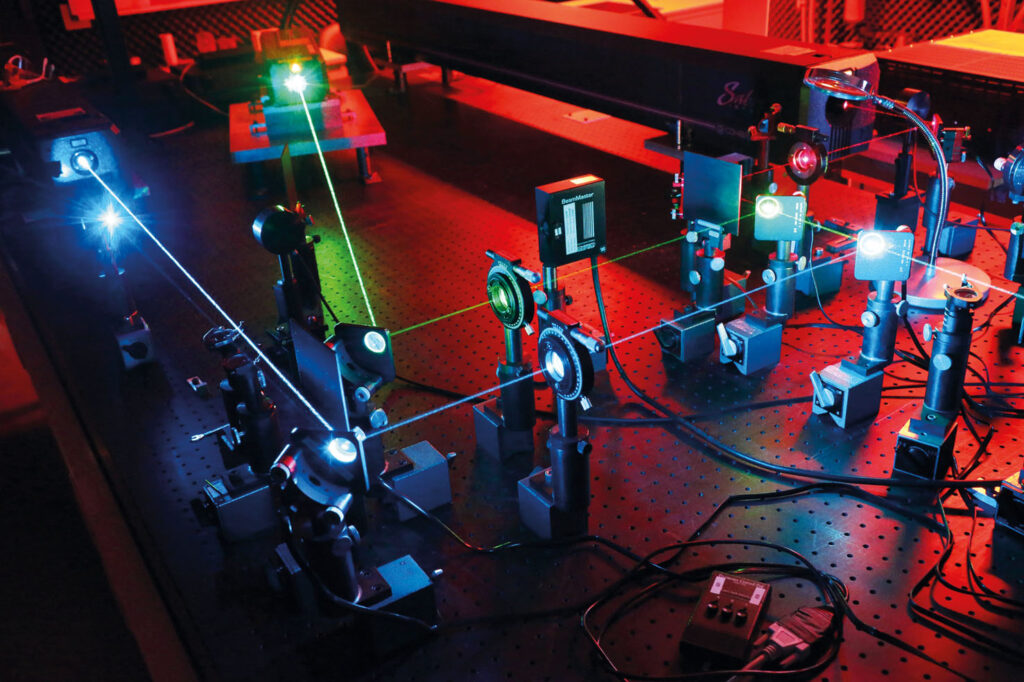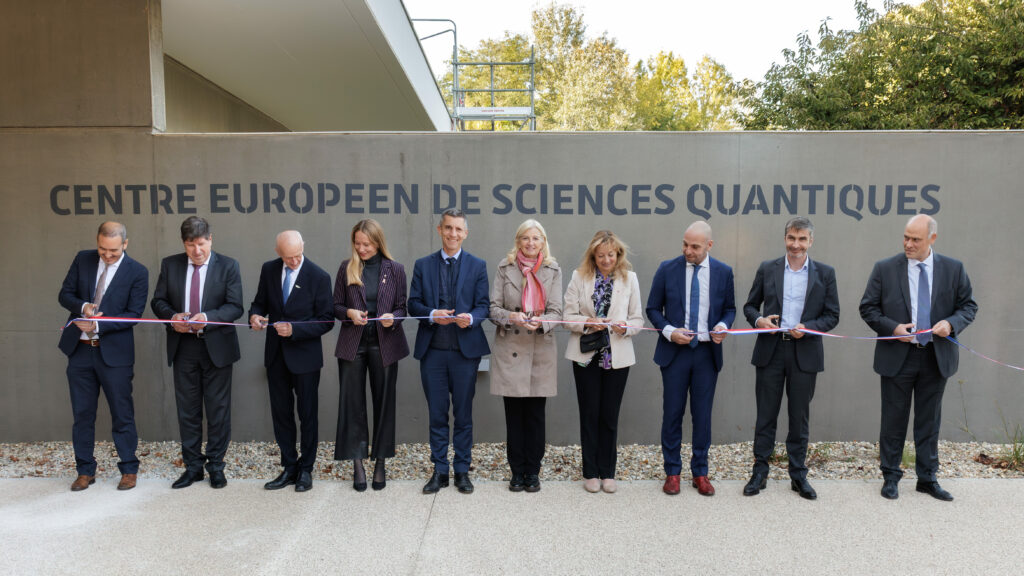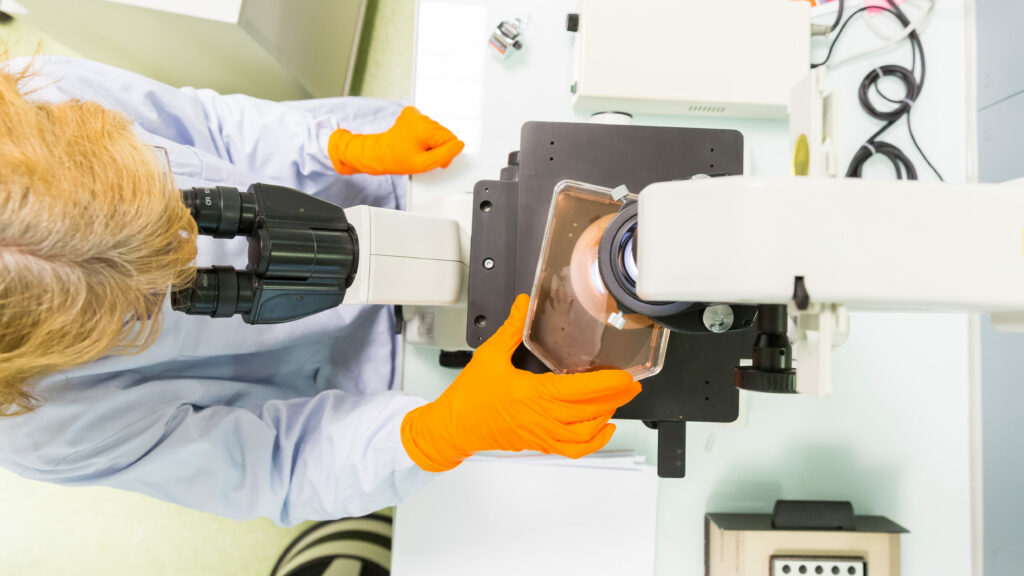
Alsace boasts an outstanding scientific ecosystem, where public research is fully leveraged to support innovation within local companies. With easy access to state-of-the-art infrastructure, both SMEs and large corporations can accelerate their technological development, receive tailored support, and participate in European collaborative research initiatives.

Research infrastructure open to businesses
Innovation is a key pillar of the Grand Est Region’s economic strategy. In Alsace, this translates into active technology transfer and public-private partnerships, led by organizations such as SATT Conectus and the region’s three innovation clusters.
Companies benefit from access to more than 60 scientific platforms and 80 research units, spanning diverse fields including but not limited to chemistry, life sciences, materials science, and quantum technologies.
CESQ: a catalyst for quantum innovation
The European Center for Quantum Sciences (CESQ), established in Strasbourg in 2023, reflects the region’s commitment to bridging research and industry. Backed by the Grand Est Region and Franco-German cooperation, CESQ will offer businesses access to hybrid HPC/quantum computing programs, specialized training, and technical support starting in 2026. Initiatives like MaQuEst and UpQuantVal enable companies to test these technologies in real-world applications across biotechnology, chemistry, logistics, and finance.
CESQ also hosts start-ups such as QPerfect, which emerged from academic research and develop software solutions for hybrid computing architectures. This model showcases Alsace’s ability to turn fundamental research into practical innovations for industry.

Scientific excellence in life sciences and chemistry
Alsace is a recognized hub for life sciences, home to over 250 companies, 15,000 jobs, and advanced infrastructure like the Nextmed campus in Strasbourg and the biotechnology center in Saint-Louis. The BioValley France biocluster, the only pan-European health cluster, brings together key players around innovative projects in e-health, diagnostics, medical technologies, and advanced therapies.
In chemistry, the University of Strasbourg ranks first in Europe (Shanghai Ranking 2025) and hosts France’s only Advanced Thematic Research Network (RTRA) dedicated to the discipline. With more than 1,000 researchers, the chemistry cluster operates at the intersection of biology, materials science, and medicine, with direct applications in pharmaceuticals, cosmetics, and environmental industries.
Cross-border cooperation driving innovation
Alsace’s unique trinational location enhances business access to public research. The KTUR² (Knowledge Transfer Upper Rhine) network, supported by the European Union, connects 12 universities and numerous economic and technological stakeholders to facilitate knowledge and technology transfer between labs and companies.
Through KTUR², businesses can:
- Access cutting-edge technologies from German, Swiss, and French research units
- Benefit from cross-border continuing education tailored to their needs
- Participate in co-funded innovation programs
- Join a trinational network of start-ups and industrial partners
This network is built on the EUCOR university alliance, which includes Strasbourg, Basel, Freiburg im Breisgau, Karlsruhe, and Mulhouse. These institutions share infrastructure and expertise to support the regional economy.

Innovation clusters in Alsace
Three innovation clusters shape Alsace’s innovation landscape:
- BioValley France (health and biotechnology)
- Pôle Véhicule du Futur (innovative mobility)
- Aquanova-Hydreos (water and environment)
These clusters foster collaboration between research labs, start-ups, and industrial players by supporting R&D projects, facilitating access to funding, and promoting collaborative innovation.
A strategic advantage for businesses
Access to Alsace’s scientific resources enables companies to:
- Reduce R&D costs by sharing equipment
- Accelerate the development of innovative products
- Boost competitiveness in international markets
- Attract top talent through a dynamic research environment
- Expand into cross-border markets via structured networks like KTUR²
In Alsace, the close relationship between public research and industry is more than a slogan: it’s a concrete reality. It offers a strategic advantage for businesses aiming to innovate, evolve, and meet tomorrow’s technological challenges.

